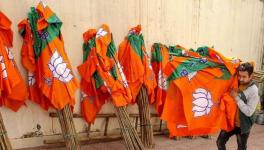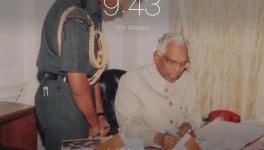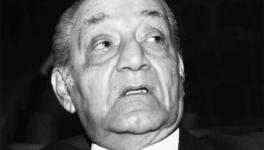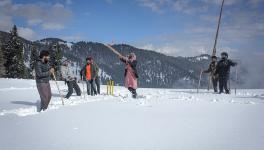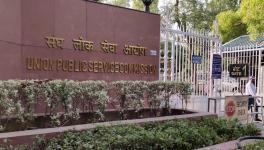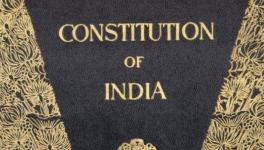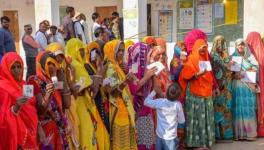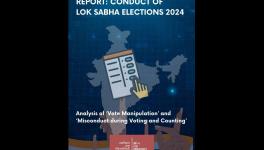Engineer Rashid’s Victory in Baramulla is a Silent Message for Kashmiri Dynasts
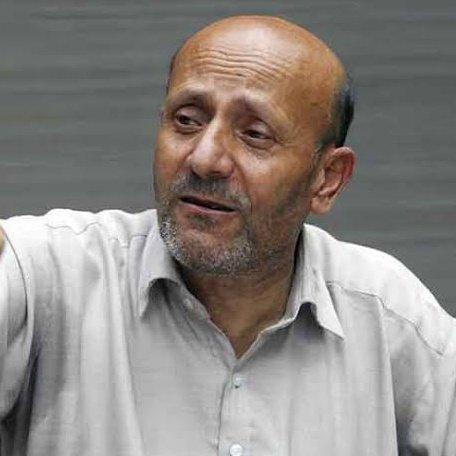
Engineer Rashid (Image Credit: X handle of @ErRashidKashmir)
When Omar Abdullah and Sajad Gani Lone filed nominations to contest from the Baramulla constituency, it was widely anticipated that the political battle would be decisively bipolar between these two prominent figures. Many dismissed Engineer Rashid as a minor contender, much like in 2019. However, as the saying goes, "A week is a long time in politics."
The week-long campaign by Abrar Rashid, on behalf of his incarcerated father, yielded an unexpected victory. Engineer Rashid secured the Lok Sabha seat from Baramulla, defeating two heavyweights -- National Conference (NC) Vice President and former Jammu & Kashmir Chief Minister Omar Abdullah, and the President of J&K Peoples Conference, Sajad Lone, who had the backing of J&K Apni Party and several other political factions.
With a lead in 14 Assembly seats, the margin of Rashid's victory over Abdullah sent shockwaves through the NC. Initially, Abdullah conceded defeat and extended his congratulations to Rashid. However, a few days later, Abdullah tweeted excerpts from articles in The Print and The Indian Express, which suggested that Rashid's victory would embolden secessionists and reinvigorate Kashmir’s Islamist movement. Through a series of tweets, he implied that Rashid won due to a sympathy vote and that his victory would be problematic, potentially reviving separatism in Kashmir.
Rashid, who has taken an oath on the Indian Constitution and served as an MLA twice, was unfairly maligned Abdullah’s endorsement of these articles. Rashid’s decisive public mandate should be respected, not tarnished. Abdullah’s tweets recall the 1987 elections, which were marred by allegations of rigging to undermine the political challenge from the Muslim United Front, suggesting that their victory would lead to secession. The subversion of the people's mandate in 1987 had far-reaching consequences, the effects of which are still felt today.
By repeatedly tweeting these articles, Abdullah has implicitly endorsed views that undermine the democratic choice of the people. Accusing political rivals of being secessionists has been an NC tactic since 1987 against those who challenge their dominance. During the 2019 parliamentary elections, NC candidate Akbar Lone accused Rashid of being an RSS (Rashtriya Swayamsevak Sangh) agent. It is paradoxical that, five years later, the party’s vice-president is implying that Rashid’s victory would revive separatism.
From these contradictory stances, one can logically conclude that Abdullah considers only the Abdullah family and their supporters are entitled to rule Kashmir. His portrayal of Rashid as an anti-national figure, whose presence in Parliament would purportedly harm national interests, appears to be a strategic move to mislead Delhi and prevent the people of Kashmir from getting an alternative in politics.
Implying that the 4,72,481 people who voted for Rashid are secessionists and radical Islamists is a profound disrespect of the public mandate. Such actions exemplify how some political figures deflect blame for their defeats onto others. Abdullah’s inability to offer something substantive to the electorate is starkly evidenced by his loss. His endorsement of these articles serves as a convenient distraction from his failure to connect with the voters. The electorate’s choice signals a demand for fresh approaches and genuine solutions. Rashid’s victory embodies this desire for change, highlighting the shortcomings of Abdullah’s campaign.
The pertinent question now is how Rashid managed to deliver such a resounding defeat to two political heavyweights in Kashmiri politics. There are several reasons for this outcome. The voters decisively turned away from the NC and the People’s Democratic Party (PDP), viewing them as dynastic elites more interested in their own power and privilege than the welfare of the people.
Similarly, the J&K Apni Party was rejected as a perceived proxy of the Bharatiya Janata Party. This reflected a desire for independence from parties seen as controlled by Delhi, either at present or historically, and not genuinely advocating for local interests.
Rashid’s accessibility and grassroots connection during his two terms as MLA, symbolised by his traditional attire and constant presence among the people, made him more relatable and trustworthy. There was significant voter turnout, with Rashid securing leads in traditionally strong NC and PC areas like Kupwara, Trehgam, Lolab, and Karnah. The shift in political dynamics, with people who previously viewed participation in elections as taboo now supporting the electoral process, marked a significant transition in Kashmiri politics.
Rashid’s campaign was organic and grassroots-driven, contrasting with the staged and heavily secured campaigns of other parties. His adept use of social media platforms, like Facebook and Instagram, to engage with voters was both relatable and effective. There was a strong anti-BJP sentiment in Kashmir, particularly in North Kashmir, where people felt that Rashid was the best candidate to represent their opposition to BJP policies. Rashid’s unique position as the only mainstream leader who remained incarcerated while others were released over the past five years, heightened his image as a victim of BJP’s actions.
This situation generated significant sympathy for Rashid, especially among women, who played a crucial role in mobilising their families and communities to support him. The widespread sympathy and perception of Rashid as a steadfast and resilient leader against BJP galvanised voters to rally behind him, significantly contributing to his victory.
The political vacuum and the August 5 decision (abrogation of Article 370, revoking state status, and its bifurcation), which impacted Kashmir’s rights and identity, fueled widespread frustration. Rashid’s win sent a strong message to the Centre. The electorate responded to the extreme pressure, suffocation, and curbs on freedom of speech and dissent by voting to have these issues represented in Parliament. This was a form of protest against the lack of space for expression and dissent, reflecting the electorate's desire for a leader who truly represents their concerns and aspirations.
The outcome of the 2024 parliamentary elections delivers a resounding message to the two Kashmiri political dynasties. With the defeat of both Abdullah and Mehbooba Mufti, it is glaringly apparent that amidst surging voter participation, the political fortunes of these two formidable lineages have been cast into uncertainty. The failure of these two political parties to resonate with the aspirations of the ordinary Kashmiri leader has become glaringly evident. The past electoral victories of these dynasties were significantly buoyed by low voter turnouts.
However, the surge in voter participation is poised to fundamentally alter the political landscape, rendering the fate of the people no longer dictated solely by the cadres of these entrenched political factions.
The burgeoning voter engagement signals a seismic shift, where the electorate refuses to be mere pawns in the game orchestrated by the political elite. The electorate has awakened to the realisation that these dynastic rulers have merely promised them bridges where no rivers flow. As they seek a more promising alternative, only time will unveil whether Engineer Rashid emerges as the harbinger of change.
Nasir Khuehami is National Convenor, J&K Students Association, studying Masters in Conflict Analysis and Peacebuilding from Jamia Millia Islamia, New Delhi. [email protected].
Ummar Jamal is National General Secretary of J&K Students Association, studying law from the University of Kashmir. [email protected]. The views are personal.
Get the latest reports & analysis with people's perspective on Protests, movements & deep analytical videos, discussions of the current affairs in your Telegram app. Subscribe to NewsClick's Telegram channel & get Real-Time updates on stories, as they get published on our website.









